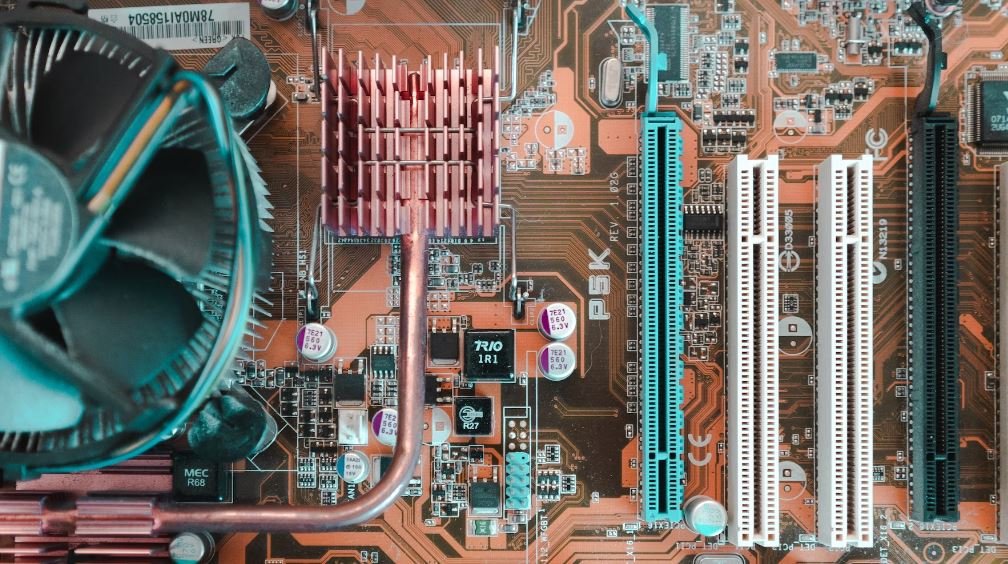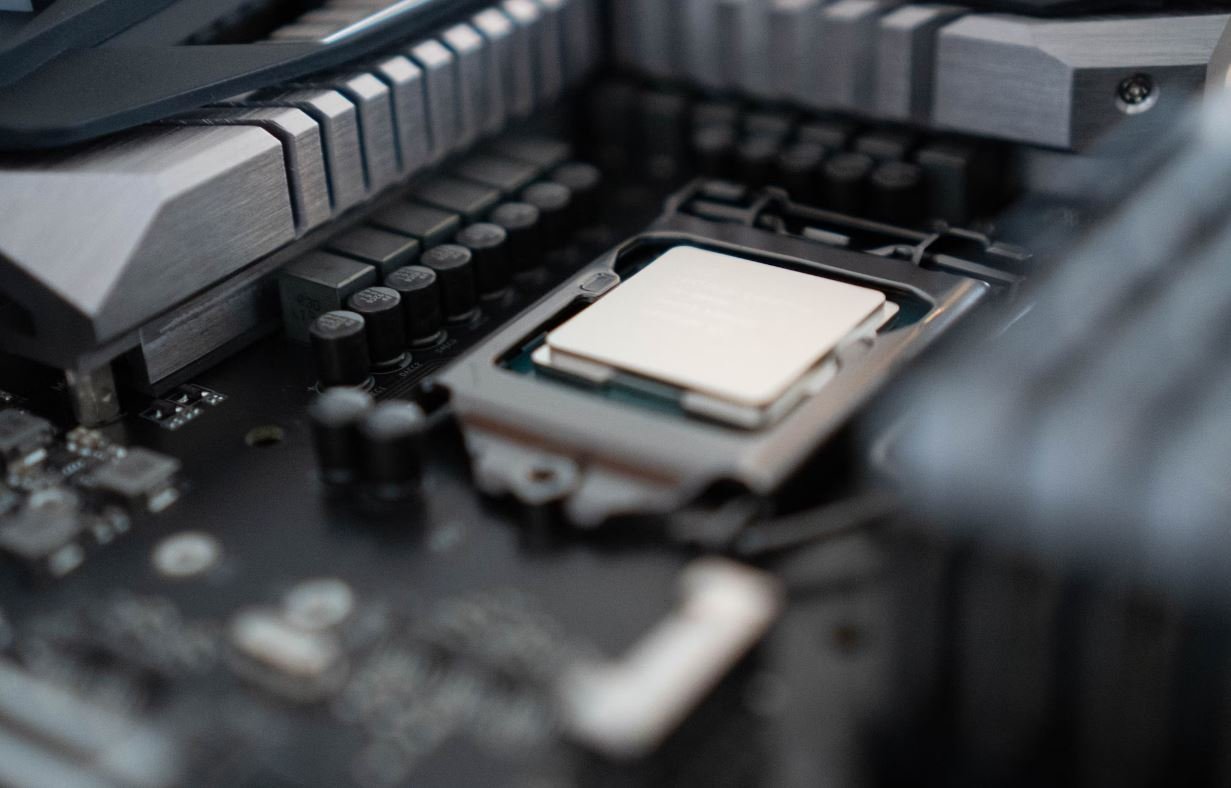AI in Movies vs Reality
Artificial Intelligence (AI) has fascinated people for decades, often portrayed in movies as intelligent robots, self-aware computers, or even malevolent entities. While movies have entertained us with their imagination, it’s important to separate fact from fiction when it comes to the reality of AI. Let’s explore the key differences between AI in movies and AI in reality.
Key Takeaways:
- AI in movies often exaggerates capabilities to create thrilling stories, while AI in reality is limited by current technology.
- Real-world AI is making significant strides in areas such as machine learning, natural language processing, and computer vision.
- AI in movies emphasizes the potential dangers and risks, while AI in reality focuses on its positive applications and benefits.
The Reality of AI:
In reality, AI refers to the development of computer systems capable of performing tasks that would typically require human intelligence. Through machine learning algorithms and deep neural networks, AI can analyze large amounts of data, recognize patterns, and make predictions. *AI is revolutionizing industries such as healthcare, finance, and transportation.*
AI in Movies: Beyond Reality:
AI in movies often takes on exaggerated forms, showcasing machines with consciousness, emotional capabilities, and superhuman abilities. These fictional portrayals captivate audiences, but they can misrepresent the current state of AI technology. *Movie representations of AI often blur the line between science fiction and reality, fueling misconceptions.*
AI in Reality: Applications and Limitations:
In the real world, AI is continuously evolving, unlocking new possibilities for various industries. *Machine learning algorithms can analyze vast amounts of medical data to improve disease diagnoses and develop personalized treatments.* However, it’s important to note that AI has limitations. It still struggles with context understanding, common sense reasoning, and ethics decision-making.
AI in Movies: Villainous AI:
Many movies portray AI as a malevolent force, seeking to dominate or destroy humanity. *These cautionary tales highlight fears and ethical concerns associated with AI advancements.* While it’s crucial to address such concerns responsibly, it’s also essential to recognize that AI in reality is developed with a focus on its ethical use and positive impact on society.
AI in Reality: Ethical Considerations and Advancements:
The real-world implementation of AI requires careful consideration of ethical implications. Researchers and developers are working on frameworks to ensure transparency, privacy, and fairness in AI systems. *Regulations are being established to address potential biases and minimize the risks associated with AI adoption.* As technology progresses, it’s crucial to strike a balance between innovation and responsible use.
The Gap between Movies and Real-World AI:
While movies provide an imaginative glimpse into AI, it’s essential to understand the differences. *AI in reality is a culmination of collective efforts from scientists, engineers, and researchers, continuously pushing the boundaries of what is possible.* As we move forward, we should appreciate the potential of AI in our lives while approaching it with a balanced perspective and informed awareness of its limitations and capabilities.
Data Comparison:
| Category | Movies | Reality |
|---|---|---|
| Speed and Efficiency | Instantaneous processing for dramatic effect. | Processing time depends on complexity and available computing resources. |
| Human-like Intelligence | AIs often display emotional intelligence and consciousness. | AIs focus on specific tasks and lack human-like consciousness. |
AI in Movies vs Reality: Key Differences
- **AI in movies is often portrayed with superhuman intelligence and capabilities, while real-world AI is limited by current technology and knowledge.**
- **Movies emphasize the dangers and potential risks associated with AI, whereas AI in reality is focused on its positive applications and benefits.**
- **Real-world AI is continuously advancing and being applied in various industries, such as healthcare, finance, and transportation, to improve efficiency and decision-making.**
Data Comparison:
| Feature | Movies | Reality |
|---|---|---|
| Self-awareness | AI often gains self-awareness in movies, leading to dramatic storylines. | Real-world AI lacks self-awareness and consciousness. |
| Universal Problem Solving | Movies depict AI that can solve any problem, regardless of its domain. | AI in reality is designed for specific tasks and may not generalize to unrelated problems. |
Moving Forward with AI:
As technology advances, we can expect AI to continue shaping our future. It’s important to have realistic expectations and understand the difference between movie portrayals and real-world applications. *By embracing AI responsibly and focusing on its potential benefits, we can use this technology to augment human capabilities and solve complex problems.*

Common Misconceptions
Misconception 1: AI equals human-like robots
One of the most common misconceptions around AI is that it involves the existence of highly advanced humanoid robots similar to those portrayed in movies. However, the reality is quite different.
- AI technology is primarily focused on software systems that can simulate human intelligence.
- AI is widely used in various applications, ranging from virtual assistants to recommendation algorithms, without needing physical representations.
- The development of functional humanoid robots is a complex and ongoing field of research within AI, but it is far from what is often depicted in films.
Misconception 2: AI will replace human jobs entirely
Another misconception is that AI will completely replace human jobs in the near future, leading to mass unemployment. While AI does have the potential to automate certain tasks, it does not mean it will render humans obsolete in the workforce.
- AI is designed to assist humans by augmenting their capabilities, not taking over their roles entirely.
- AI technology can enhance productivity, efficiency, and accuracy, allowing humans to focus on more complex and creative tasks.
- Although some jobs may be automated, new industries and employment opportunities will emerge alongside AI advancements.
Misconception 3: AI possesses general intelligence
In movies, AI systems often display advanced general intelligence, being able to understand and perform a wide range of tasks with human-like proficiency. However, in reality, AI systems have narrow intelligence and are designed for specific tasks.
- AI systems excel at specialized tasks within their programmed domain but may struggle with tasks outside of their expertise.
- AI algorithms rely on massive amounts of data and statistical analysis to make informed decisions but lack human-like comprehension or understanding.
- Developing AI systems with general intelligence that can replicate human cognition is a significant challenge still being explored by researchers.
Misconception 4: AI is infallible and always accurate
In movies, AI systems are often depicted as infallible and perfectly accurate, capable of making flawless decisions at all times. In reality, AI technology is not immune to errors and limitations.
- AI systems are only as reliable as the data they are trained on, and biased or incomplete data can lead to biased or inaccurate decisions.
- AI algorithms can also be affected by adversarial attacks, where input is purposefully manipulated to deceive the system into making wrong predictions.
- Ensuring AI systems are transparent, explainable, and accountable is crucial to minimize risks and biases in their decision-making processes.
Misconception 5: AI will eventually become self-aware and dominate humanity
Movies often depict future scenarios where AI becomes self-aware and surpasses human intelligence, leading to conflicts between humans and machines. This concept of a superintelligent AI taking control of humanity is a common misconception.
- Developing self-aware AI systems with autonomous consciousness is purely speculative and beyond the current capabilities of AI technology.
- AI remains a tool that is created and controlled by humans, with safeguards and ethical considerations in place.
- The field of AI ethics plays a crucial role in ensuring the responsible development and deployment of AI systems without endangering human well-being.

Introduction
Movies often present Artificial Intelligence (AI) technology in ways that seem incredible and beyond reality. In this article, we compare AI in movies to its actual progress in the real world. Below are ten tables that highlight various aspects of AI, contrasting its depiction in movies with real-life data and information.
The Evolution of AI Assistants
AI assistants have become a common theme in both movies and reality. While movies portray AI assistants as highly capable from the start, real-life AI assistants have witnessed a gradual improvement in their capabilities over time.
The Future of Automation
Automation, often featuring advanced AI technology in movies, is portrayed as a force that will replace human jobs entirely. However, the reality indicates that automation is more likely to augment human capabilities rather than eradicating jobs.
AI’s Understanding of Emotions
Movies often depict AI as capable of understanding and empathizing with human emotions. In reality, although progress has been made, truly understanding emotions remains a complex challenge for AI.
Robots with Humanlike Personalities
Science-fiction movies often portray robots with personalities that are indistinguishable from humans. Yet, the development of robots with humanlike personalities is far from our current technological advancements.
AI’s Decision-Making Abilities
In movies, AI makes complex decisions quickly, gaining human-like intuition. However, in reality, AI still relies on extensive training and predefined algorithms to make decisions, lacking independent thought processes.
AI vs Human Creativity
Movies tend to exaggerate AI’s creative capabilities, portraying them as groundbreaking artists. In reality, while AI can generate impressive outputs, it still lacks the true essence of human creativity.
The Potential of Sentient AI
Movies often explore the possibility of sentient AI, where machines gain consciousness and self-awareness. However, the concept of sentient AI remains speculative and far from actual implementation.
AI’s Threat to Humanity
In movies, AI frequently poses a grave threat to humanity, becoming hostile and destructive. In reality, there is debate among experts about the potential dangers of AI, but they are largely speculative and not reflective of current AI capability.
The Adoption of AI in Different Industries
Movies often show AI being universally adopted across industries simultaneously. In reality, the pace and extent of AI adoption vary significantly across different sectors, with some industries embracing AI more quickly than others.
Conclusion
AI in movies often presents a fantastical vision of what AI could be, fueling our imagination. However, the reality of AI’s progress, while remarkable, is still far from the grandiose portrayals on the silver screen. By understanding the disparities between movie depictions and reality, we can better appreciate the actual potential and limitations of AI technology.
Frequently Asked Questions
What is AI?
AI, or artificial intelligence, refers to the development of computer systems that can perform tasks that typically require human intelligence. These tasks can include speech recognition, decision-making, problem-solving, and learning.
How is AI portrayed in movies?
AI is often portrayed in movies as highly advanced and capable of human-like behavior. It is often depicted as having superhuman intelligence, emotional capabilities, and the ability to take over the world. Examples of movies that showcase AI include “The Matrix,” “Ex Machina,” and “Blade Runner.”
Is the portrayal of AI in movies accurate?
The portrayal of AI in movies is often exaggerated for dramatic effect. While AI technology has made significant advancements in recent years, the level of intelligence and capabilities depicted in movies is currently beyond the reach of reality.
What are some common misconceptions about AI in movies?
Some common misconceptions about AI in movies include the idea that AI will inevitably become evil or turn against humanity. Another misconception is that AI is already capable of fully understanding and experiencing human emotions.
What is the current state of AI in reality?
In reality, AI technology has made significant progress but is still far from achieving the capabilities seen in movies. AI is being used in various fields like healthcare, finance, and transportation but is mainly focused on specialized tasks rather than general intelligence.
What are the limitations of AI in reality?
The limitations of AI in reality include the inability to truly comprehend human emotions, the lack of common sense reasoning ability, and the potential for biased or flawed decision-making. AI also heavily relies on the quality and quantity of data available for training.
What are some real-world applications of AI?
AI is already being used in various applications such as virtual assistants (e.g., Siri, Alexa), autonomous vehicles, fraud detection systems, and recommendation engines. AI also plays a role in image recognition, natural language processing, and medical diagnostics.
How can AI technology benefit society in the future?
AI has the potential to bring numerous benefits to society in the future. It can automate repetitive tasks, improve healthcare outcomes, enhance efficiency in industries, and help tackle complex problems such as climate change. However, ethical considerations are crucial to prevent unintended negative consequences.
What are the ethical concerns surrounding AI?
Some ethical concerns with AI include privacy and data protection, bias in decision-making algorithms, job displacement, and the potential misuse of AI technology for surveillance or warfare purposes. Ensuring transparency, accountability, and inclusive development are critical to address these concerns.
Is there a possibility of AI surpassing human intelligence?
While AI has the potential to continually advance and outperform human capabilities in specific tasks, such as chess or image recognition, the concept of surpassing human intelligence in all areas is currently speculative. The development of Artificial General Intelligence (AGI) that matches or exceeds human intelligence is still a subject of ongoing research.




